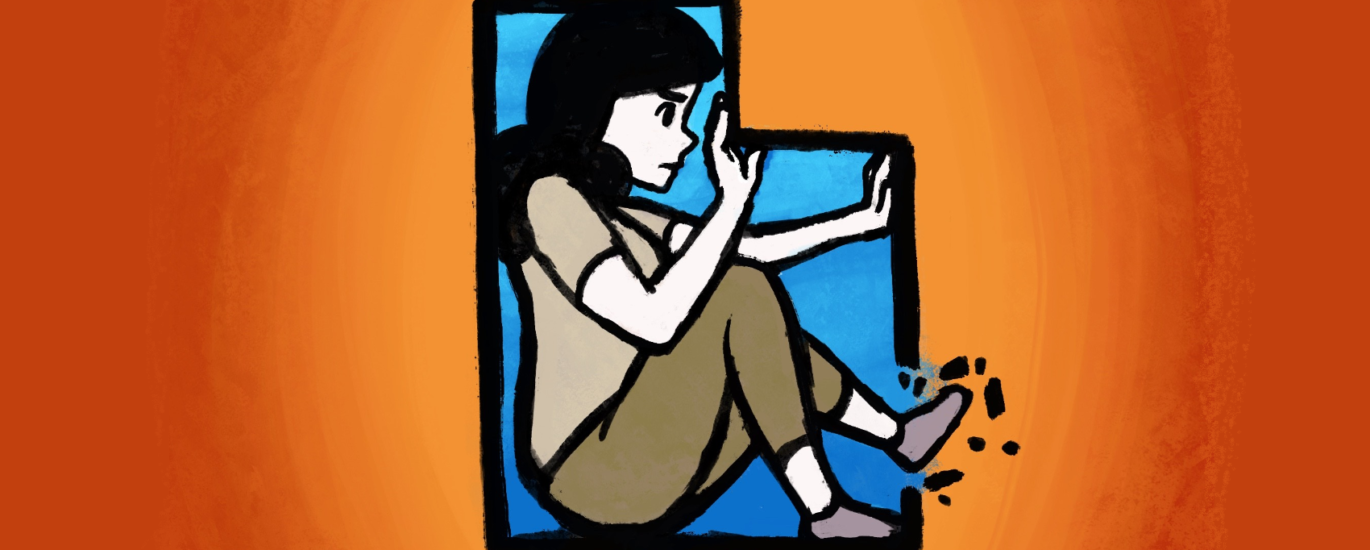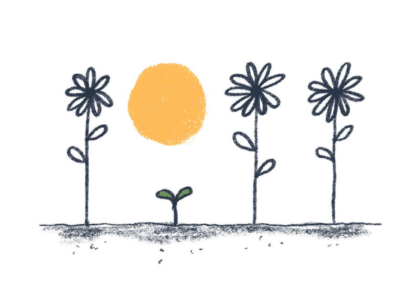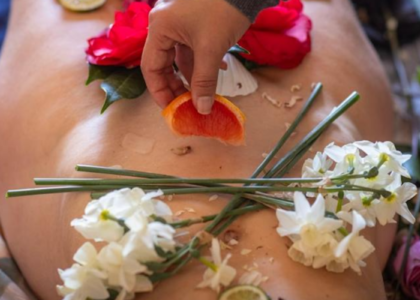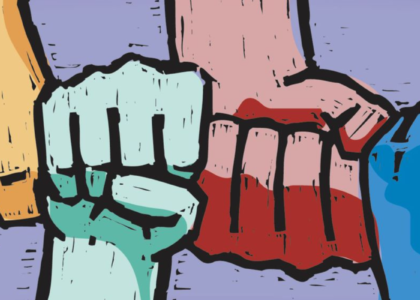“what connects to you is the most important”
Amy is joined by Dr. Susan Madsen to discuss the current gender inequality experienced by girls and women in Utah, what we can do to create change, and why we need A Bolder Way Forward.
Our Guest
Dr. Susan Madsen

Dr. Susan R. Madsen is the Karen Haight Huntsman endowed professor of leadership in the John M. Huntsman School of Business at Utah State University. She’s also the founding director of the Utah Women in Leadership Project and is leading a statewide social change movement titled A Bolder Way Forward. Professor Madsen and her team have written extensive resources on women’s leadership and they host many events each year to support the mission of their work. Susan is also a well-known global scholar, authoring or editing nine books and publishing hundreds of articles, chapters, and reports. Her research has been featured in the U.S. News & World Report, The Atlantic, The New York Times, The Washington Post, and she is a regular contributor to Forbes. She’s a well-known speaker in local, national, and international settings, and she’s presented at Argentina’s Parliament Palace, the House of Commons in England, Lithuania’s Presidential Palace, the Costa Rica Parliament, and NGO sessions at the United Nations. She and her husband, Greg, are the proud parents of four adult children and six grandchildren.
The Discussion
Amy Allebest: You may have noticed that the title of this podcast is not Breaking Down The Patriarchy, and that’s on purpose. There’s nothing wrong with saying “the patriarchy”, but when I think of it that way, I picture a group of men purposely and knowingly orchestrating laws to oppress women. Arguably, maybe that does happen sometimes, but what’s way more common is that patriarchy as a system or a concept pops up in all different levels of human life. I have patriarchal constructs in my own mind. Sometimes my husband and I discover patriarchal expectations that we didn’t even know were there in our marriage. There are patriarchal practices within women’s groups and schools and workplaces. And then, of course, most of our religions and our governments are explicitly built on patriarchal foundations.
Some religions in some states may have more patriarchy and some have less, but it’s really everywhere. For example, if we’re talking about states, in 2020, my family moved from the San Francisco Bay Area in California to Utah. And we love living in Utah. We love the mountains and the national parks, and we have family and such a wonderful group of friends here. But I learned something this last year that on the state level, if we’re measuring for women’s equity, gender equity, Utah ranks 50th out of all 50 states. Suddenly I am a lot more interested in patriarchy at the state level. Why is Utah like this and what can be done about it? Here to talk about this issue with me today is Dr. Susan Madsen. Hi, Susan. Welcome to the podcast!
Susan Madsen: It’s so good to be here. I love to talk about these topics, even though they’re hard for some people and they’re frustrating. I think it’s important to continue to talk about them so that we see and can teach and educate other people.
AA: Yes, exactly. Well, I am so excited to learn from you about this. I have to say that I’ve heard your name for years and years, and it was an honor to finally be able to meet you. We’ll start by having me read your professional biography really quickly first, and then I’ll ask you to introduce yourself more personally.
Dr. Susan R. Madsen is the Karen Haight Huntsman endowed professor of leadership in the John M. Huntsman School of Business at Utah State University. She’s also the founding director of the Utah Women in Leadership Project and is leading a statewide social change movement titled A Bolder Way Forward. Professor Madsen and her team have written extensive resources on women’s leadership and they host many events each year to support the mission of their work. Susan is also a well-known global scholar, authoring or editing nine books and publishing hundreds of articles, chapters, and reports. Her research has been featured in the U.S. News & World Report, The Atlantic, The New York Times, The Washington Post, and she is a regular contributor to Forbes. She’s a well-known speaker in local, national, and international settings, and she’s presented at Argentina’s Parliament Palace, the House of Commons in England, Lithuania’s Presidential Palace, the Costa Rica Parliament, and NGO sessions at the United Nations. She and her husband, Greg, are the proud parents of four adult children and six grandchildren. I want everyone to know who’s listening, I also abbreviated that biography. That is impressive, Dr. Madsen.
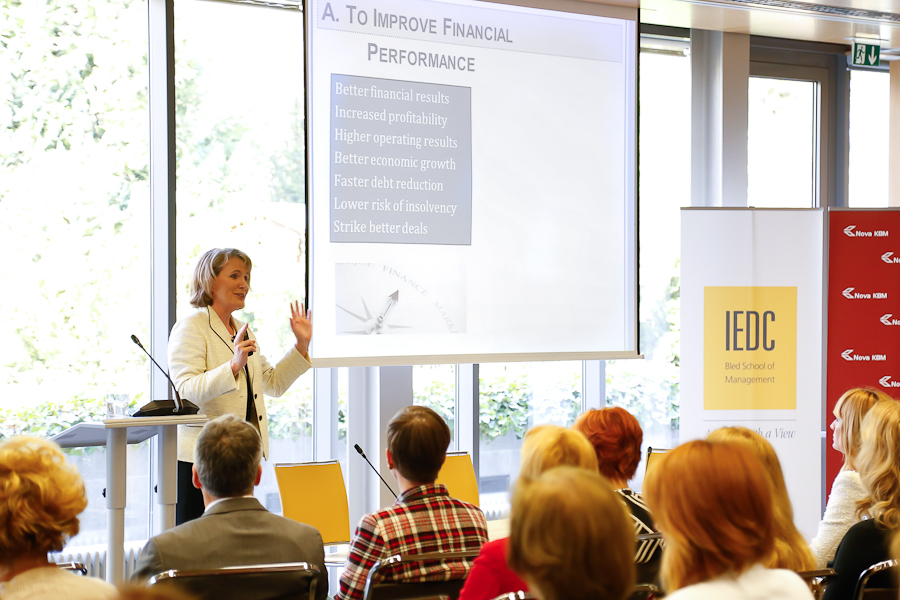
SM: Oh, thank you.
AA: You’re clearly a living example of women’s leadership as evidenced by all of the work that you’ve done. You have a lot of things like lived experience too, not just research that you’ve done. I’d love to know how you got to where you are. Where do you come from and how have you arrived at the work that you’ve been doing in your adult life?
SM: Those are big questions. It’s really interesting because for women in general, when we look at the research, very few women actually get to be leaders in a pathway that they’ve thoughtfully planned intentionally, and the same thing with me. I happen to be a very religious and spiritual person, so I have to say that spirituality has guided me in my decisions. But I originally just knew that I needed to get my education, so I started my undergrad. I was raised, by the way, with six brothers in a very traditional home, which I still love. I never thought I would actually work for pay, all of these things, but I knew I needed to get an education. I did my bachelor’s degree, but then I had a few years of having two babies and then I went back for my master’s degrees. And in my master’s degree, this was so long ago, it was in exercise physiology. I felt the pull or the call, whatever you want to call it, towards women’s topics. And it was exercise physiology and wellness, but I studied pregnancy and exercise, and PMS management through exercise and nutrition, and osteoporosis and all of these things. And I have all these brothers and it’s like, where is this coming from? And I taught exercise for women and so forth, so I can see the background, even years before, of this interest or this call or pull towards helping women, honestly.
And then I had a couple of my babies and a number of years later went back for my PhD. And at that point, my coursework and interests were work and family relationships and workplace policies and all kinds of different things. And I then started doing research and became a professor. It was about twenty years ago where I thought I really needed to pivot. I was doing change research towards women. People used to come up to me and say, “You’re a leader, you’re a leader!” And I did feel like a leader. I had six brothers, most of them younger. I started leading in the home. But what we’re experiencing, often, we are interested in. And so I really started down that path. And then I was asked in Utah fifteen years ago to do some research on why more women weren’t graduating from college. It was a one-year project but it never ended. Fifteen years later, we are the biggest project on women and girls. We’re a prominent force in the state on these topics.
So I will tell you that through all of those paths, I didn’t know why I was getting my education, I just knew I needed to. And for me, it’s spiritual. For other people it may not be, but we can feel called even if we’re not spiritual or religious. For me, it’s from God. And I just knew that I needed to prepare myself to use my voice and to do something that maybe others were not going to do. I didn’t know what that would look like, but I kept down that path and then could see that next step right in front of me. And at this point I’m much older, but to be in the place that I am with some good influence, and it’s humbling. But you look back and you realize that you’re really glad you listened to that inspiration that was coming to you so that you could be prepared to do the work that you need to. So I do that for others all the time. I’m trying to help them feel their calling because there’s so much to be done in this world, Amy, I mean, just so much. There are so many needs when you look around. Poverty and homelessness, sexual assault, domestic violence, positive things like helping more women start businesses or whatever it might be. But I believe we’re all put on earth to do certain things and it’s important for us to find that call and lean in. That deeper purpose is really important. It’s a drive. It sucks sometimes, can I say, because it’s hard to rest sometimes with a busy mind when you know that you can help others. Hopefully that answered your question.
AA: Yeah, that was wonderful. That’s a great introduction. And I can relate to that drive too, and sometimes thinking I’m just not going to do this anymore. And it lasts about, I don’t know, a couple hours.
SM: You get depressed. Sometimes you just have to have that little break. I never make important decisions when I’m tired.
AA: That’s smart.
SM: You get up in the morning and things look a little bit more optimistic.
AA: Yeah, it’s true. And for my work, too, I am doing it because I want to. Sometimes I get so exhausted that I expect to wake up the next day thinking, “No, I have to quit.” And I wake up and I can’t wait to get back to it. So, yeah. Well, that’s wonderful. Thank you for that intro. I’d love to talk more about Utah. I went to college in Utah and my husband and I lived here for a minute. I was actually born in Salt Lake City, but I grew up in Seattle and then Denver, and the longest I’ve ever lived any one place has been in California, and that was for most of my adult life. So I’m familiar with Utah, but as a resident I feel a little bit new to the state. I wonder if you can introduce us to some of the issues for women in Utah and why it ranks so low.
SM: Excellent question. I need to say first, I love being a woman and I love living in Utah. And right at the moment there’s beautiful snow falling, I can see it out my window, and it’s just gorgeous. The mountains are gorgeous. And I love that, after living in Minnesota, it doesn’t get super, super cold here. It’s really nice. I love that. Yet – you were waiting for the “but” but I’m using the “yet” instead – we have some struggles. And it’s not just Utah, it is more conservative and religious cultures. And all of the things that we’ll talk about today are not just issues in even more religious and conservative cultures, they’re in every place around the world. There’s not an exception, even though certain parts of the world and certain countries are better than others.
There are so many needs when you look around.
But when you get into societies that are more religious and conservative, you see, for instance, the pay gap. Everybody’s got an issue, for the most part, with the pay gap. There are some getting close to solving that. But when you’re in a more conservative and religious culture, you’ll see the bigger gaps. And in Utah, we were always around 45th or 47th. Wyoming was worse than us, I could always say that until this past year and then we ranked as even worse than Wyoming. We have the biggest pay gap in the nation. There are all kinds of research around religiosity, just so you know, Amy, and the pay gap. If you want to talk about that more in the future, that’s just one thing.
We look at our rankings, but we also look at our data on pretty much everything. On WalletHub’s ‘Best and Worst States for Women’s Equality’, we have been the worst state for eight or nine years now, and the gap gets bigger and bigger. Isn’t that interesting? Out of a hundred points, two years ago we were seven points behind Idaho. That whole year I said, “If we can just get past Idaho!” And then the next year we were twelve points behind Texas, and this year we’re twenty points behind, so there’s even more of a gap. So, what does that include? WalletHub doesn’t include everything, and some people kind of boo WalletHub. But we did a massive report where we went back to all the original sources and we still rank as the worst state. There’s a workplace category, there’s a political empowerment category, and there’s health and education. The things in health and education that they look at are graduate degrees, the difference between men and women in graduate degrees. We have the biggest gap in the nation on graduate degrees. There’s a huge gap. No state is even close to the gap that we have.
Second, and we’re not the worst in this but we’re like 39th, is the difference between men and women in their worry about the cost of healthcare and related to their decisions to seek help. And this is not part of WalletHub, but what we know is we are 49th of 50 on preventative healthcare for women. We have really bad rates of mammography in this selfless society of women not taking care of themselves. That’s partly cultural as well, that I should sacrifice everything. And that’s tough, right? That’s tough. And then the last one in that category, and this one will surprise you. They look at 8th grade math scores and the difference between boys and girls. And we have the biggest gap in math scores between boys and girls.
AA: Wow.
SM: I want to tell you that that is not genetics. This is socialization. There are other states with no gap. There are countries with no gap. But when you’re in more conservative societies, patriarchal societies, the patriarchy, as we’re talking about today, you tend to have more defined roles between men and women. Women do this, men do this. It’s more appropriate for women to do these kinds of things than men. Even if you don’t say, “Girls are worse at math than boys,” which is not true, they somehow get those messages all around them. And Amy, your listeners may think, “What’s the big deal about that?” Oh my gosh. Your confidence around math impacts what you take in high school, what you major in in college, how you deal with money the rest of your life, your career choices. Are you following this?
AA: Oh, yeah. For sure.
SM: Another category is women in political power. How many women in your state legislature, in Congress, the percentage there. That is absolutely related to women’s equality. If you have more women in your state legislature, you’re going to pass policies. In fact, the states that have more women in their state legislature are linked to states that have more funding allocated to things that women care more deeply about, like K-12 education – we don’t have a lot of money compared to other states – like poverty, homelessness, resources for sexual assault and domestic violence. We have had nothing in those areas. Yet in more religious societies, you tend to have more sexual assault and domestic violence.
And there are many in the workplace, and those are things like the pay gap. There are things like the minimum wage, like women that serve in executive positions for companies and so forth. Of course, we have lower rates in those kinds of things. And there are some others, but those are some key ones, you know, economic security and even poverty rates. So that’s the worst day for women’s equality. But then there are other metrics and other kinds of things like preventative health care. And sadly enough, we’re the ninth worst state for rape per capita.
AA: My gosh.
SM: I know. This is why A Bolder Way Forward! We are really good and high on things like volunteerism and things like that.
AA: That’s not surprising.
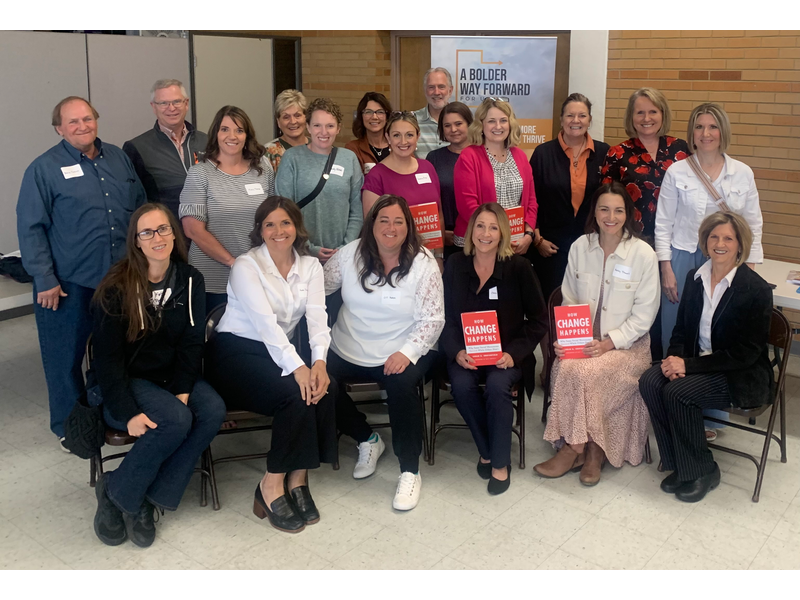
SM: Yeah. And we’re increasing. We’ve had a lot of work, there’s a lot of people. We have lots of partners doing work. But still, I have to say, Amy, the reason I launched the Bolder Way Forward is because I’ve done work, like you said, at the United Nations, at the European Union, at different places where we’ve looked at trajectories, like how many decades is it going to take us to get it in certain places? For the first time in late 2022, I said, “I wonder, looking at all of this data in Utah, how long is it going to take us to really make notable progress?” And what really came to me as I looked and analyzed is that at the rate we’re going, even though good pieces and parts are happening, there are lots of women’s conferences, there’s lots of stuff happening, it’s going to take us three to four decades to make notable progress. To get violence down, to get opportunities up. And I say that’s not acceptable. Somehow, we need to do things better and faster. And hence the whole Bolder Way Forward is a movement we launched about seven months ago, and we already have a couple thousand engaged and hundreds of organizations. But we need tens of thousands to hundreds of thousands, because things are not going to change unless every home is more educated and changes practices in every school and community. I’m super passionate about this.
AA: I’m curious what initiatives have been in place. What have they done, and have they moved the needle at all? And what is the framework for A Bolder Way Forward? How is it different from what’s been going on in the past?
SM: If you look on our website, and if you’re in Utah, you’d be particularly interested, we actually have linked for years all the women’s groups and networks in the state. There are about 180 throughout the state. We bring them together once a year and connect with them. So there have been women’s groups and there have been some initiatives. Different groups have been doing different things. Many other groups are just network things, but groups like Utah Women Run, which I’ve been a member of for about 10 years, are really focused on getting more women to run for office. This is really key, Amy. Many things change when you have more women leaders. That’s one of the foundational things we have to change so that there are more women at the tables. And we’ve been seeing slight, but not enough, slight progress in terms of some shifts on more women becoming mayors or city council members and different things. But it’s so slow.
There are other groups like the Women’s Leadership Institute, the YWCA. Anyway, there are lots of groups that have been doing pieces and parts of it, and some of them very successfully. For instance, the YWCA and many of our domestic violence and sexual assault coalitions, they’re making progress in terms of helping survivors, yet there’s not been any funding towards prevention. So, yes, we have been successful at helping certain people and changing. The one thing that we’ve been doing a lot of work on for fifteen years is getting more women to go to college and graduate at the bachelor’s degree, so that has increased. But I’ll tell you, our violence rates are not going down. There are very few opportunities in other ways. I could go through data sources, we have wonderful reports that help us know that. But right now, when you look at statistics of rape in the state, like I said, it’s one in six. And child sexual abuse, one in seven. And there are many other states that have a lot of issues too, we just highlight them a lot.
I have had a few people, not very many people, who say, “Why do you highlight the negative?” Uh, because it needs to change! Why are we as Utahans not moving heaven and earth to protect our children? That is the basics of humanity. If we are not allowing anybody to go through terrible things, you know, we have kids with A.C.E.s, adverse childhood experiences, that affect them for the entire rest of their lives. I just feel so moved, honestly, by God to elevate the issues here. I happen to be a very active Latter-day Saint myself. And I get pushback occasionally, but not too much. People understand and even men are understanding, not all men are understanding this because there’s an underline of sexism in every place that’s really invisible to most people. It’s invisible to many women. More and more women are getting it, but it’s super invisible to men. Patriarchy is very invisible. Too bad. Can I just say that?
AA: You can!
SM: And I know the research around it, right? What was interesting is that we had a study a couple years ago. In Utah, using an instrument with men and women, on women, what challenges do you have in the workplace and in leadership? And then men, what do you think women’s challenges are? The deepest thing that men do not see is male privilege. By far. Of anything, it’s that privilege. And I’ve challenged myself, I push myself on race, and I have learned so much. It has taken me some years, and I see my privilege as a white person much more than I used to, and I have much more empathy because of that.
there’s an underline of sexism in every place that’s really invisible to most
AA: Okay, so tell me more about the Boulder Way Forward.
SM: Thank you, I love talking about the Boulder Way Forward. As a background, in 2022, I was really restless. I’m like, we’re not moving the needle. Like we just talked about, it’s so slow. Once you turn 60, things change, haha. You’re like, “Huh. I can see the end of my career down there.” And I was just like, what do I want to do? Do I keep doing what I’m doing? I do get awards, people recognize that it’s helping some people, but it’s not over the needle. And I was so restless. And I will tell you that in the fall of that year I read a book, and two flights to Costa Rica, I did some speaking down there for Congress, and two flights back. And by the time I landed– it’s a book called How Change Happens: Why Some Social Movements Succeed While Others Don’t. I have studied change for years and it just brought everything together. By the time I landed in Utah, I had the model, I had the name. When I’m up in an airplane I feel that inspiration coming to me, maybe because I’m trapped, maybe because I’m closer to heaven, I don’t know. There could be a combination. I have to be still. It’s good to be still. I’m not a real good still person.
And then I started trying to awkwardly articulate it. And by the time I hit November, I knew that this is the right way forward. I felt so inspired that we need to change things in Utah. And I have a voice that people listen to and I know the research, so I started putting the pieces together. With the pieces that I’ve told you about, with the violence, with being the worst state, having low leadership positions for women, knowing that the trajectory, it would take us three to four decades. All of that, my model ended up coming together as a seven-year movement called A Bolder Way Forward. Three to four decades, not. The rate we’re going though, with the pieces and parts, that’s what it’s going to take. And I’m thinking of my twin grandkids, and it just can’t be three to four decades. We need a better Utah, a safer Utah now. Every state needs to do work like this. The primary goal of this is to help more girls and women thrive and do it in seven years as compared to thirty to forty.
But also, when I landed, this model that I read in this book, How Change Happens, really talked about one thing at a time, like Mothers Against Drunk Driving. That was a successful change. Like smoking, making smoking not popular, and so forth. But when I landed, I’m like, we can’t do it one at a time. We can’t do seven years for one thing like domestic violence or entrepreneurship or the pay gap. We need to do everything together because everything connects together. So I started really building this out and we have a model of a wheel. It’s a hard road, but we’ve been filling in potholes and now we need to move this wheel. We have five categories: safety and security, which has five of what we call spokes, of child sexual abuse, domestic violence, poverty, sexual assault. We have a health and wellbeing category, and that includes home and family stuff as well as to help mental health and all kinds of health. We have an education category with three spokes, and that includes regular education K-12 and higher ed, but also financial. Ooh, there is a difference there. And then workplace things and then community engagement, which is advocacy but also running for office. So all of those things really include everything. And we have this wheel with things on the rim that intersect and need to be taken into account in all 18 of these areas, things like race and ethnicity, things like sexism, things like male allyship, LGBTQ allyship.
You can look at the model at abolderwayforward.org. Basically, the gist of it is that we’ve got lots of things going. We have so many women’s conferences! There are so many things, but we’re not moving the needle. Systems thinking is the key, and that as the whole is greater than the sum of the parts. So we’re doing parts. We’re really good at that in Utah, parts and pieces. But can we connect everything in ways that we see more clearly what each person is doing, what each group and organization is doing, and then shift together in powerful ways? That’s the key. So this is taken from research, and we are doing that. We’ve been building it out, getting the groups together, getting the organizations, companies, partners, the state government. The governor has supported this, religious organizations, everything to come together.
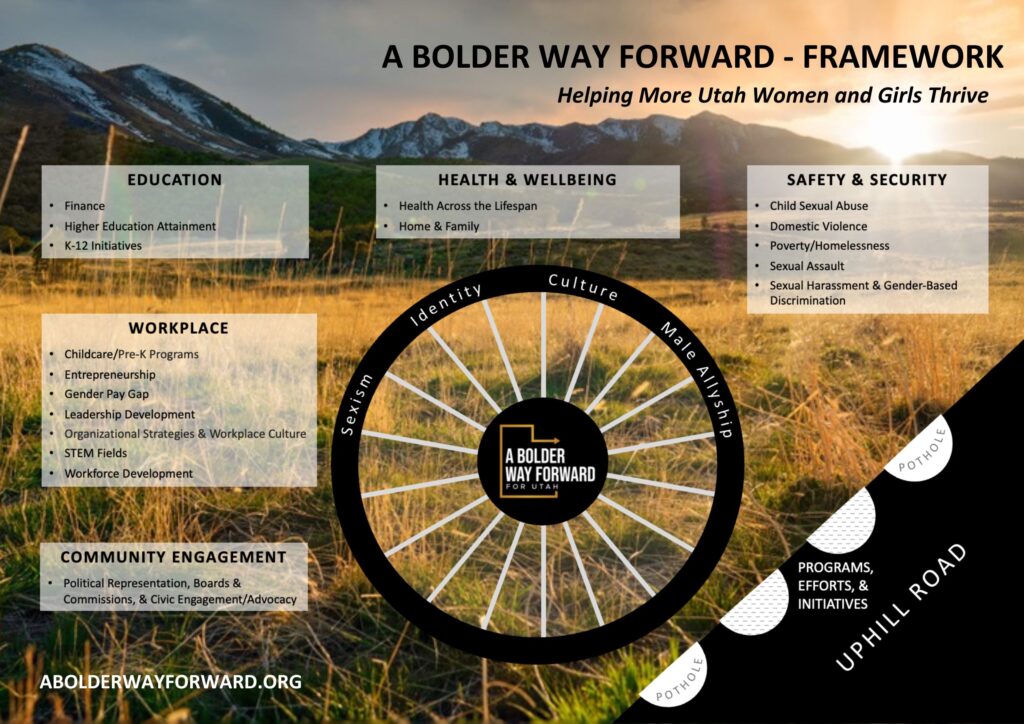
And I’ll tell you the beautiful thing, Amy, is that I’m not the only one. There are so many people working on this, but it is the time. It is. It feels like the time. Utah’s the place to do something remarkable. We do have great people here and we can do something that no other state has done. And on the funny side, we’re at the bottom so there’s nowhere to go but up! Haha. It’s really exciting and people are just coming on. There are a couple thousand already engaged, hundreds of organizations, so it’s pretty powerful stuff and it’s exciting. It’s a lot of work though, and it can be exhausting. But I am inspired every day by the people that have engaged around me and the work that needs to be done and to have a true belief that we can do remarkable things working together.
AA: How do people work together? I’m just sitting here, maybe you can use me as an example. I am just thinking of how I engage in this work already. I’m pretty solitary. I mean, physically, I guess, because I’m in a room by myself doing my work most of the time. But I am engaging with people online, right? I have a social media following. A lot of my listeners are LDS or LDS adjacent. Women and men too. But I’m doing this work, this was my own idea. I started this initiative. I’ve created this kind of community and it’s an education project, right? So I’m educating people on the history of patriarchy and how to deconstruct patriarchy in all these ways, but I’m not really connected to anybody else in Utah. I kind of know the landscape a little bit of other podcasters who are kind of in the same space. And then the other thing I was thinking is that I have kids in school.
SM: You are connected!
AA: I am connected, but if you use me as an example, I am an example of somebody who’s doing things that I’m like, I see a need for this, I’m going to try to make a contribution, but I’m not doing it in concert with anybody else. For A Bolder Way Forward, what I hear you saying is that you need people coming together and pushing the wheel.
SM: Yes, but bringing what you do and what your head, heart, and hands, what you’re interested in. Patriarchy is one of your things, in your heart, what are you feeling pulled towards? What are your passions? And then your hands, what do you want to do? And you’ve done all of those to create this podcast. You were using your head, your heart, your passion, and your hands in getting the message out and educating. So for the Bolder Way Forward, and even if you’re not in Utah we have ways for you to engage if you’re interested, wut what I encourage people to do is to figure out what their head, heart, and hands are interested in. For instance, we have a lot of things right now around child sexual abuse and domestic violence. We have these 18 spokes, from pay gap to STEM to finance. And if people are passionate about this, we have it set up where we have spoke leaders and working groups within each where people can come and do work as partners, really serving things.
But we also have affiliates who maybe can’t be in working groups, but they want to stay in the loop. They want to get communication and then they share it with others. So that’s like interviewing me for this podcast. You are a bit of an affiliate with the Bolder Way Forward. There are ways to engage in the work, whether you’re passionate about one topic, which most people are. Or we have these impact teams of race and ethnicity, there are so many areas, but really learning about them, starting to talk about them, even reading the research that we put out. Your conversations, whether it’s at church or with your neighbors or wherever, just starting in moments, right? I call them transformational moments, where you say something, give a statistic, give a story or whatever to somebody that then says, “There really is a problem with this in Utah. I need to pay attention to it.” Those moments matter.
There are so many ways to be engaged, honestly. And what you’re doing to help get the word out, and even other things, whether it’s social media or other things as part of the Bolder Way Forward if you’re in Utah. As a scholar, I really like people to understand information. Not just use emotions and everything, but know the statistics. We have reports, and some of them are just four pages or two pages! And we have infographics, so every single person, man or woman, any gender, I should say, there’s a place for you to be engaged. In Utah we have 29 counties total, but we have county coalitions already set up in 16 of them, and it’s going to have to get to the street and the community level. Everything we do makes a difference. So Amy, there are ways that you can get the message out, including this, and become engaged.
But I always tell people that what connects to you is the most important. Because each of us is so different, and I want people to feel called. But for women specifically, Amy, one of the things that we have to do is to understand and acknowledge and accept our gifts, our talents, and our strengths, instead of dismissing those and trying to be “humble”. That humility means being teachable. It does not mean being small. And we as women have to say, “These are my gifts and talents,” and then we can find our deeper purpose and calling. But if we don’t know that and we’re just saying, “Someone tell me what to do,” we’re not going to find that space of true impact in this world. I think more and more, we want to make an impact. Most of us do, don’t you think?
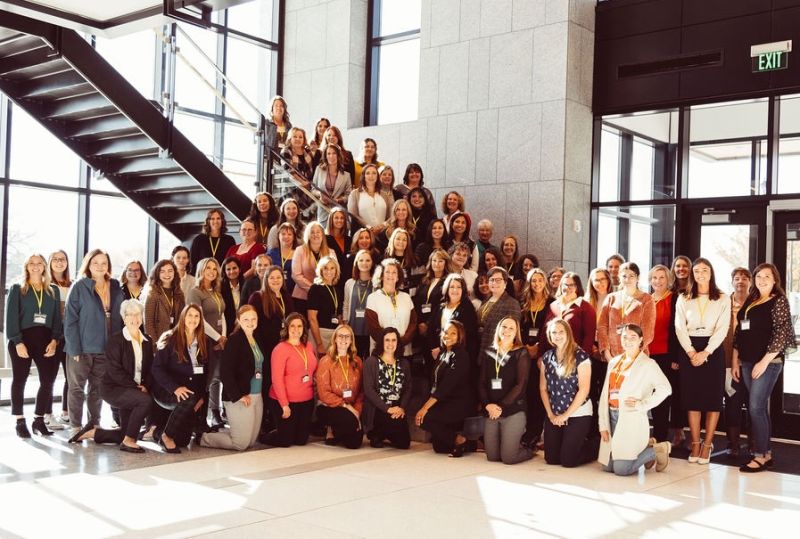
AA: Mm hmm. Oh yeah, for sure. For sure. What I’m hearing is that you’re emphasizing that everybody, if you are able to mobilize individuals to do what they feel called to do, then some of them will be more inclined to work at a macro level and they’ll want to work in government. And for some maybe that’s not their personality, but they could have conversations with their family and friends and they could share data that they learned. So it’s kind of grassroots, I’m hearing. It has to be people changing. It has to.
SM: Yeah, yeah. It has to be at the grassroots level. Because let’s talk about child sexual abuse. One in seven in Utah experience child sexual abuse, and many states are just the same. But unless the messages get to every home, things are not going to change for all these children. And so we have to do it. It’s going to fly out even more, and we’re going to elevate all these wonderful partners that are coming to the table. We’re not doing all the work. I have a very small team, but we’re pulling the right people together to make the difference. And that can be companies, state government, or local government, but that can be a stay-at-home mom with social media and with a community. We could do a lot these days. And back to your comment, whether that’s public policy, I was up at the Capitol supporting some things, being on the steps at a rally. But it could be all kinds of other things, helping others around you develop their leadership, helping others around you, especially women, understand their gifts and strengths. There are pieces of this, but we’re trying to pull it together so that more people are informed and more people are engaged and know how to get engaged. A lot of people don’t know how to get engaged, but there’s so much good work that we can be involved in.
AA: Do you measure progress as you go or are you doing this work at the grassroots level and getting more people involved and then you’ll see that the numbers will start to change as people get more involved? Are there group managers that are like, “I’m going to track this spoke of the wheel”?
SM: A combination. With all 18 of our spokes, we now have, as of just a week or two ago, what we’re calling those bold goals for 2026 as our check in. And then 2030 is the end of our seven years. So we have six and a half more years. And in the next month or so we are getting dashboards so that people can follow those goals. We did a major study to get perceptions and understandings of over 3,000 Utahans, so we have a baseline now of, do they think certain things are problems? Do they believe that they can find opportunities or have support from their family to start a business if they chose to? All kinds of different issues around tracking down the data for the number of savings accounts. That’s huge. Finance and retirement accounts. All of these are metrics. So we’re tracking everything that we can. And for things that are really challenging to track, we’re going to start pulling together research teams and partnering with universities across the state to get to the data so that we can show year by year what’s happening. The research tells us that we have to do that to really keep the motivation up and to know if we’re making a difference. Yeah, there are a lot of things that are not measured but we have to start measuring them. It’s critical.
AA: Okay. Well, I have one more question for you, and this can be kind of a tricky needle to thread. I know since I moved here that with different political candidates that I’ve supported since I moved here, the LDS Church has such a huge influence here. And it can be a tricky needle to thread for people who do want progress and run into, you know, like anywhere, if you think about the Catholic Church, or if you think of the Bible Belt in the South, and the evangelical influence. People who are wanting to make progress run into a faction of their religion that is super conservative and feels very threatened by change. And then there’s always a group of people who believe that that’s actually the true manifestation of their religion, is forward progress and including more people. Since you describe yourself as a very spiritual and religious person, you’re an LDS woman, and at the same time you described how some of these problems seem to come from LDS culture if not LDS doctrine in some cases, how do you personally reconcile that and what’s your advice for any women who are listening who are members of the LDS church but do want greater gender equity?
SM: Oh, wow. Big question there.
AA: You have two hours! No, just kidding.
SM: Yeah. Well, first of all, I feel a thousand percent called by God as a member of the Church of Jesus Christ of Latter-day Saints to do the work I’m doing. I feel it is absolutely aligned with my religion. Absolutely. And in fact, when I do what are called stake firesides in my religion, I have quote after quote from leaders in my church that say in the future, which is now, that women’s voices are so important and that women will be leading nations. If women would rise up there would be peace worldwide. If we can get women’s voices, I mean, I have so many quotes about all these things. So I know that as we move forward, we have to have more equal numbers of men and women getting involved in these things, running for office, serving in office, all of these things. To me, the piece about in our church, there are talks about women in the priesthood and different things, which to me is not something I wrestle in. There are so many ways that we as women can use our voices and things are maybe not exactly in any church the way God needs them right now for true equality moving forward. But there’s a dissonance there, right? But for me, if I keep the core of what I call my religion my testimony, the rock in Christ, and really understand personal revelation, to me it’s all about what God’s telling me personally to do. And I have a lot of peace about that.
Things need to change though. It’s not acceptable that we have some of the rates that we talked about. But the more that we understand, like in more religious societies, you do have a bigger power dynamic between men and women. And when you have a bigger power dynamic between men and women, you tend to have more violence. You tend to have those things happen. So we as a society can change. We just have to be more intentional. We have to make informed decisions. We need to do more in having conversations, which we’re not that good at in my church and most churches, having those conversations about difficult topics. In the past, we’ve hidden those things. And I say that that’s unacceptable moving forward. We can’t change unless we move things forward.
unless the messages get to every home, things are not going to change
So there is in my religion, you know, it’s a patriarchal religion. And you can reframe what patriarchy means for your own purposes in religion that that means something else. But I will tell you that that word, when you look in the dictionary, means that men are in charge. That’s just what it means. And when you look in your congregations, oftentimes it is men who have the callings. There’s going to be change, and I feel like there has to be. What that looks like, I don’t know. I’m just a lowly attender and teach my Sunday school, but when women approach me and we talk about this, I talk about that relationship we have with God, and that’s the most important. Yes, we need to be pushing things, and I’m so grateful for my sisters of the past who fought for the suffrage movement and got us the right to vote. There are things like that today, but sometimes you go through the wall, sometimes you go over the wall, sometimes you go around, you do the splits. There are needs for all that.
So I encourage women specifically, whether you’re religious or not, to understand your gifts and talents and strengths. Dive into that, understand and own those, and then figure out that calling and purpose that you can engage in. There are a lot of people that suffer from depression, some clinical, some situational. There’s a lot of situational depression and looking for purpose. I was in that for a couple of years right after I started having a couple of kids. I was like, what is life about? It’s just no fun. My mom would say, “Find joy in the moments, find joy in the moments.” But everybody has a purpose and is put on earth to do certain things, so dive into that.
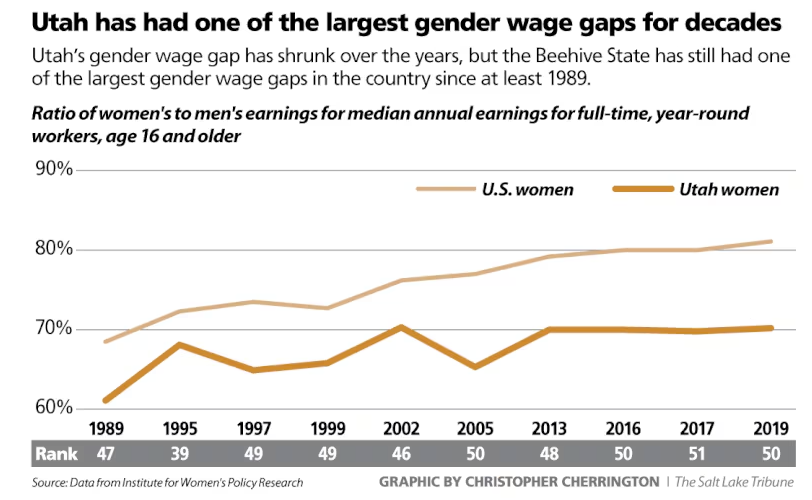
AA: That’s interesting that you mentioned that, too, because it reminds me of a comment on my Instagram account that I just saw recently. There was a man, it was not offensive, it was fine, but it just had me thinking today. He’s like, “You should be grateful and happy, and you can be in any circumstance.” His comment was more oriented toward, like, “Why are you focusing on the negative so much? We can all just be joyful and grateful.” And that is true that gratitude is super important and that people can have happy and meaningful lives in all kinds of circumstances. But it also can be a way of keeping people from asking the hard questions or from pointing out the problems. Or like you said at the beginning, where you’re like, people say, “Why is it so negative?” Well, you have to be able to diagnose an illness before you can treat it effectively, right?
SM: Can I just say that in patriarchy in general, I mean, you see this happen like with the Taliban and you see what’s happened to those women. When there’s a big divide, and even in Utah, there are negative consequences from that that are not acceptable. When people complain, “Why are you complaining?” Because we have to if we want change and there must be change to make sure that everyone thrives and has joy and doesn’t suffer. We’re not supposed to let people suffer, and that happens when there’s too much control by men. I’m just being blunt.
AA: Hear, hear. You’re preaching to the choir here.
SM: I know I am. I know.
AA: But it is so important. So, yes, thank you so much. And I will just echo what you said. It’s so important for people to do what they feel called to do, and some will be more radical and some will be maybe more conciliatory and some will advocate for smaller reforms while some people go in a little more brash. I think everybody’s voices are needed.
SM: Absolutely. And what we know in the state of Utah, there are only about 15% that fall in the edges, right and left. About 85% were moderate. And sadly in Utah, if you believe that women should be respected and have a voice, you’re a moderate. Isn’t that interesting?
AA: Yeah, isn’t it? Well, thank you, Dr. Susan Madsen. It’s been a joy to talk to you. Thank you for your work. I’m going to be looking up how to get more involved.
SM: Oh, good.
AA: My little spoke in the wheel and get it moving along. I’m wondering if you can close out our episode today by reading one of the quotes on your website that we were discussing just a minute ago. I found it so inspiring. Would you mind reading that?
SM: I’d love it. I actually end this way a lot when I give speeches. I end with “Utah must do better to ensure that everyone thrives.” And can I just say, when we lift girls and women, we’re not taking away from boys and men. When we lift girls and women, we lift boys and men. So Melinda Gates once stated, “If you want to lift up humanity, empower women. It is the most comprehensive, pervasive, high-leverage investment that you can make in human beings.” Our vision, again, is not to lift up girls and women at the expense of boys and men. That’s actually the scarcity mentality. Instead, we believe that there is enough for everyone through cooperation and collaboration, the abundance mentality. Because when we strengthen the impact of girls and women, we actually strengthen families, we strengthen everyone. So, thank you. It’s been wonderful to be with you today.
AA: Thank you so much, Susan.
Humility means being teachable.
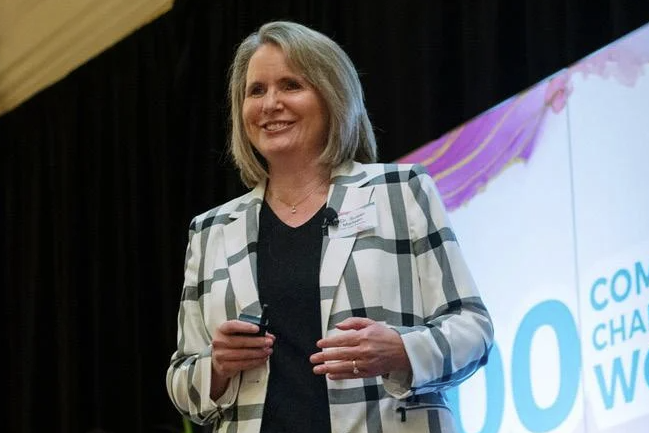
It does not mean being small.
Listen to the Episode
&
Share your Comments with us below!

